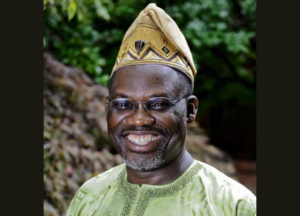Antioch revisited: are the shepherds listening?
By Rev. Dr. Joshua Bogunjoko
 Acts 13 describes a church far away in Syria that became the first to officially commission cross-cultural foreign missionaries in the New Testament Church.
Acts 13 describes a church far away in Syria that became the first to officially commission cross-cultural foreign missionaries in the New Testament Church.
Now there were at Antioch, in the church that was there, prophets and teachers: Barnabas, and Simeon who was called Niger, and Lucius of Cyrene, and Manaen who had been brought up with Herod the tetrarch, and Saul. While they were ministering to the Lord and fasting, the Holy Spirit said, “Set apart for Me Barnabas and Saul for the work to which I have called them.” Then, when they had fasted and prayed and laid their hands on them, they sent them away. (Acts 13: 1-3, NASB).
It appears that some of the people recorded in this account would be the equivalent of today’s pastors. They were together; they were ministering to the Lord and fasting. We are not told the specific issues upon which they were fasting, but certainly their hearts were one with the Lord’s, for indeed the Lord spoke. The Lord asked these leaders of a diverse Antioch church to set apart Barnabas and Paul for the work to which He had called them. After that “setting apart,” the rest is history. Antioch – a church with listening shepherds, pastors and leaders – has had greater impact on the world than perhaps the Church in Jerusalem itself.
The point is this: when the Great Commission was given and Christ commanded his followers to be his witnesses to the ends of the earth, no one could have predicted that a church planted among Gentiles far away in Syria would so profoundly influence the world. If you ask me what made the difference, I would say, “listening leaders.”
Indeed, while Peter was still in Jerusalem defending his presence in the home of Cornelius, God was already raising leaders in Antioch by his Spirit. These leaders would listen for his voice as they ministered to Him and worshiped. They were prophets and teachers, and were sensitive to the Lord. Their hearts were where the Lord’s heart was, and God found them ready to carry out his commission.
He gave them the privilege of commissioning one of the greatest Apostles who ever lived. That commission resulted in the writing of almost two- thirds of the New Testament. Paul, along with his companions, was one of the greatest influences in the Canonized New Testament.
How was that possible? How did a church, founded by persecuted migrants and refugees, receive such a place of honour and importance in the scheme of God’s redemptive work around the world? They had leaders or shepherds who listened to God. They fasted, they ministered and they listened.
Pastors are central to what God is able to do with his own Church. No wonder Paul warned the Ephesian elders by charging them to take heed to themselves and to the flock over which the Holy Spirit had made them overseers. These shepherds could grow or destroy the flock. They could encourage God’s people into their highest calling or prevent them from hearing it. They occupy an amazing place in the lives of God’s Church and his people. How many more Antioch churches does God have out there, with shepherds who will listen for his voice?
This call is still going out today, and listening shepherds still hear it. The reasons God asked that Barnabas and Paul be set apart remain the same. Paul summarizes them in Acts 26:18: “to open their eyes so that they may turn from darkness to light and from the dominion of Satan to God, that they may receive forgiveness of sins and an inheritance among those who have been sanctified by faith in Me.”
Many still live and die without ever hearing God’s good news. In many communities, cities and towns Christ is not known, or was once known but is no more. The God who called the church in Antioch is still calling today: “Set apart for me!”
Are the shepherds hearing? If you are, what are you willing to do about it?
Rev. Dr. Joshua Bogunjoko, SIM International Director
